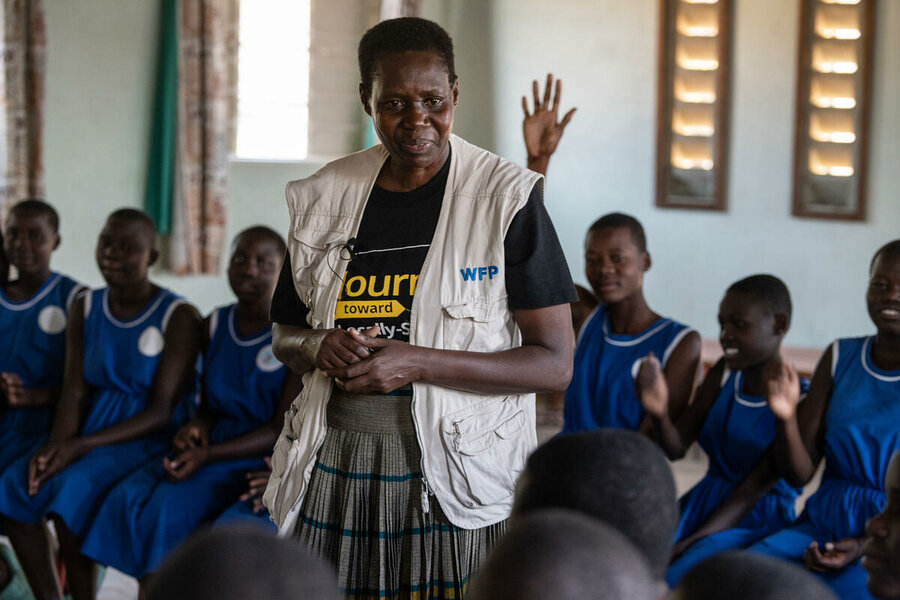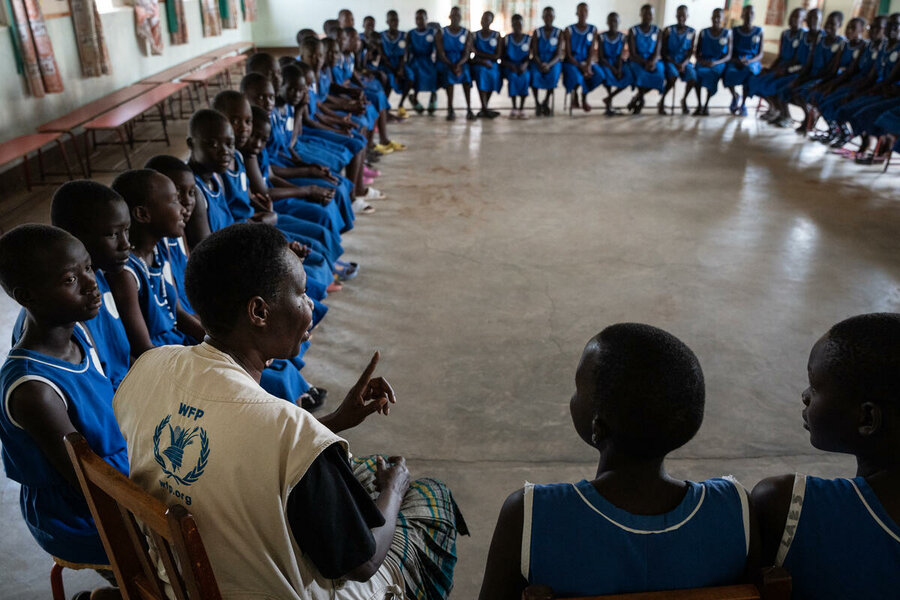Joyce Namoe, a programme assistant with the World Food Programme in Uganda, joined WFP in 1999.
She is passionate about using school feeding as an incentive for parents to keep girls in school.
"We're saving a lot of girls from early marriages, forced marriages," she says. "Just run to school, once you enter the gate, you are saved."
And she should know - when she was 19, Joyce, who joined WFP in 1999, took the radical step of running away from her family, all the way to Kenya, to avoid marrying a man chosen for her by her parents.

After a perilous journey across the border, she landed on her feet teaching English and maths to novice nuns at a convent. But she always knew she had to return.
"I wanted to come back and tell other girls that you can make it as a girl. There is hope as a girl. You can be somebody in society as a girl," she says. "If I had not passed through the school, I wouldn't have survived a forced marriage."
Today Joyce oversees school feeding at the very WFP-supported girls' school in Kagole, in the sub-region of Karamoja, she attended as a child - which she credits with 'saving' her.

"School meals mean a lot for these children," she says. "They incentivize parents to send girls to school - and school is a lifeline for girls."
By going to school, "at least you're able to eat once a day, or even twice a day because we give them breakfast, we give them a mid-morning snack, lunch," adds Joyce.
Sadly, widespread poverty means forced marriages persist - livestock is capital and livestock ownership carries the promise of security for many parents.
"When they see somebody that they think has cows, they will force you to marry that person," says Joyce.
"Girls need to understand who they are, that they're able to stand up and resist some of these cultural practices that we believe in as a community."






